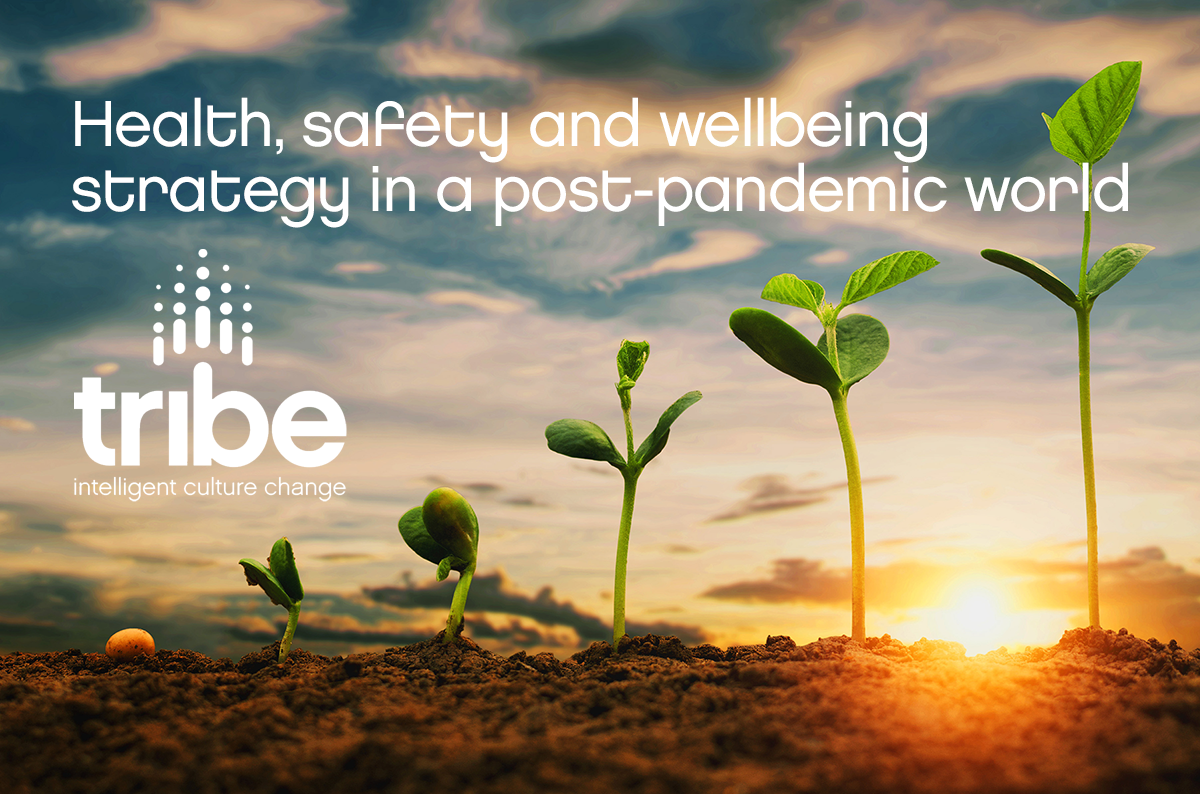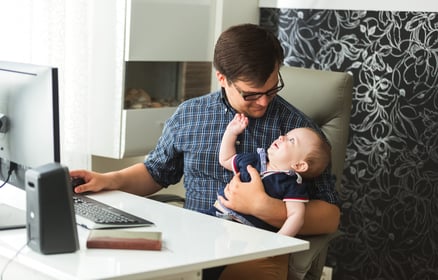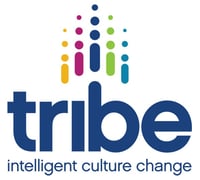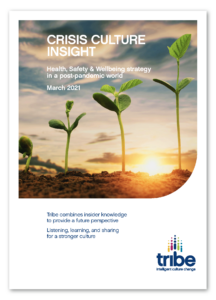
Health, safety and wellbeing strategy in a post-pandemic world
Following our June 2020 Crisis Culture report exploring how organisations were dealing with Covid-19 from a HSW perspective, we’ve now launched our second report exploring where we now find ourselves in 2021.
Our new report provides observations from Health, Safety and Wellbeing professionals plus our consultants’ collective insights. In this article, we hear from our Lead Consultant, Ella NilaKanthi Ford, about the report findings.
The rapid onset and persistence of Covid-19 really took the Western world by surprise in 2020. While some business leaders continue grappling with daily pandemic challenges, others are confident that the health of their employees is being protected.
Achieving the right Health, Safety and Wellbeing trajectory requires challenging choices. So in the middle of so much uncertainty and disruption, how far should you shift from a ‘steady as she goes’ approach to a faster, more agile, approach?
The June 2020 Tribe Insight report found that organisations were generally reacting quickly and with purpose as the crisis shifted. Here’s an overview of where we are now…
Major trends
Mental Health, burn out and emotional exhaustion
From the client conversations carried out for our report, there is evidence to show increasing mental health issues within workforces. To counter this, lots more open conversations are taking place but are they enough? Managers are being asked to make time for people’s mental health but most – at the best of times – are ill equipped to ask the right questions and deal with the answers.
Respondents are seeing more people coping with anxiety and ill health. There was also a genuine concern that there may be unknown issues at play.
“People may be suffering, and we can’t see it.” HSE Manager, Manufacturer
Remote working
Remote working has become a tale in two parts. On the one hand, most people have become used to working from home. On the other, many would return to the workplace in a heartbeat. Some people are thrilled about their greater productivity and flexibility, as well as the time and sanity reclaimed from long, stressful commutes. Others cannot wait to get back to the office, to talk face-to-face with people and work collaboratively in a single co-located space.
The pandemic pushed companies and consumers to rapidly adopt new behaviours that are likely to stick, changing the trajectory of approaches to flexible working. But while people are more used to home working, they are struggling with juggling domestic issues such as home schooling or multiple family members trying to co-work in the same space.
“Initially, people saw home working as a short-term solution. We now recognise it as a long-term solution.” HSE Manager, Manufacturing
Approach to risk – operational activities and complacency
Risk mindset appears to have become polarised. There is a belief that workforce complacency may be a growing problem. People are not always following Covid-safe procedures or are resorting to performing activities on their own when two people are actually required. Bad habits have crept in.
“Some people may be tempted to skip rules to make it easier to do the job in a socially distanced way. So where it is recommended that two people work together, they are tempted to work alone.” HSE Manager, Manufacturing
Changing regulation
The variety and potentially conflicting regulations and speed of advice continues to prove a challenge to many businesses. Different international rules are complicating planning. This has been a major logistical issue for companies running marine operations or working in the travel industry. Issues that have arisen can vary by nationality and quarantine rules – especially around dealing with different nationalities on and offshore.
“Conflicting guidance – different guidance from NHS/HSE/Gov/Industry sector etc – is causing confusion.” HSE Manager, Telecoms
Commercial pressures
Getting the future strategy correct will be vital in building resilience across organisations. The new investor mindset will be asking difficult questions of organisations when it comes to their organisational resilience, their approach to Health, Safety and Wellbeing and their engagement with partners and contractors.
“Our HSE budgets were tight pre-Covid but now with all the financial focus in the business, we anticipate we will be really stretched.” HSE Manager, Technology
Engagement and communications
Many managers, already struggling with seemingly relentless workloads, are finding it difficult to cope with speaking to all their team members. There appears to be growing isolation between individuals working from home and their colleagues and, indeed, the organisational purpose, values, and priorities. More silo working is apparent too.
“Normally, communications are emailed out to a workforce in the hope they get read but we’re seeing even more fragmentation. People are working in hierarchical bubbles and collaboration is missing. When people collaborate, innovation takes place, but people are working in a much more process-driven way now.” Tribe Lead Consultant
Five Key Learnings to build into your Health, Safety & Wellbeing Strategy
In a world of uncertainty, the goal must be to rebuild for the longer term. Based on these observations, Tribe has put together a series of planning recommendations for HSW leaders. To read the full recommendations, download the report.
- Capture the lessons learned from new ways of working
Many companies are diving into the details of their return plans rather than focussing on the human capital and capabilities needed for a return. The time of populating spreadsheets with data to react to a crisis has passed. Identifying the numbers of people to fit into specific offices, adaptations to communal areas and so on, are great tasks but they are just part of the future jigsaw. To energise the workforce, it is important to build trust and understanding. Engagement and communication will be essential.

- Capture and sustain the speed of decision taking
Now is the time for business leaders to find ways to recapture, and sustain, the sense of organisational energy, urgency, and speed – without the accompanying fear and stress. If some of these changes become permanent, if companies could operate in expedient and ingenious ways while keeping their employees safe, these shifts hold the potential to recalibrate the business and its operations which will ultimately improve the company’s performance potential and Safety Culture maturity.
- Be clear on purpose – engage individuals
During times of crisis, individual purpose can signpost a future that helps people face up to uncertainties and allows them to navigate them better. It helps to mitigate the damaging effects of long-term stress. Returning to the workplace, individual purpose aligned to company purpose can build employee experience, raise engagement, and increase those positive feel-good factors that lead to improved feelings of wellbeing.
- Assess the impacts on individuals
While we may assess the lasting impact of the pandemic on the workforce, the mix of occupations, and the skills required, consider the individual’s future journey.
Remote work offers companies the opportunity to enrich their diversity by identifying workers who, for family and other reasons, were unable to relocate to cities where opportunities were concentrated before the pandemic. Start with a granular analysis of the tasks required for the business, rather than the jobs. Then there will be a clearer identification as to what work can be done remotely.
- Use communications to engage & motivate
To re-energise the organisation – to act rather than react, it is important to be clear about purpose and focus on engagement. The methods you use to share this energy will be your key to success. The next normal may also mean resetting how companies relate to and communicate with their people and how they should address future Health, Safety and Wellbeing issues.

In conclusion…
Yes, uncertainty remains. But now the goal must be to rebuild for the longer term. Companies that are strong and resilient will have firmer foundations from which to build future success. But those are qualities that can’t be taken for granted; they need to be cultivated.
To read more, download the full report .
We know that every organisation is unique, and the attitudes, values and beliefs of your people will shape how they respond during and beyond the pandemic.
To find out more about our Crisis Culture thinking or culture change work, contact us.
About Kanthi (Ella NilaKanthi) Ford
Lead Consultant
Kanthi is a highly skilled and experienced leadership coach, culture and behaviour expert. She has a fantastic ability to engage people and has delivered many complex culture change programmes for Tribe clients. An acclaimed author, her most recent book is called ‘Bias Impacts: How Culture and Diversity Affects the Leadership Journey’.
Specialisms: Diversity, equity and inclusion, Leadership and employee engagement, Behaviour change psychology, Global delivery
Industry experience: Aviation and Aerospace, Agri-business, Agri-food, Banking and Fintech, Construction, Energy (renewables, oil, gas, hydrogen and shale), Facilities, Healthcare, Manufacturing, Pharmaceutical, Rail, Retail, Technology, Telecoms, Utilities
About Ella NilaKanthi Ford
Lead Consultant
Kanthi is a highly skilled and experienced leadership coach, culture and behaviour expert. She has a fantastic ability to engage people and has delivered many complex culture change programmes for Tribe clients. An acclaimed author, her most recent book is called ‘Bias Impacts: How Culture and Diversity Affects the Leadership Journey’.
Specialisms: Diversity, equity and inclusion, Leadership and employee engagement, Behaviour change psychology, Global delivery
Industry experience: Aviation and Aerospace, Agri-business, Agri-food, Banking and Fintech, Construction, Energy (renewables, oil, gas, hydrogen and shale), Facilities, Healthcare, Manufacturing, Pharmaceutical, Rail, Retail, Technology, Telecoms, Utilities




